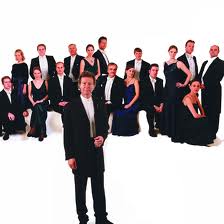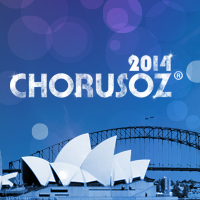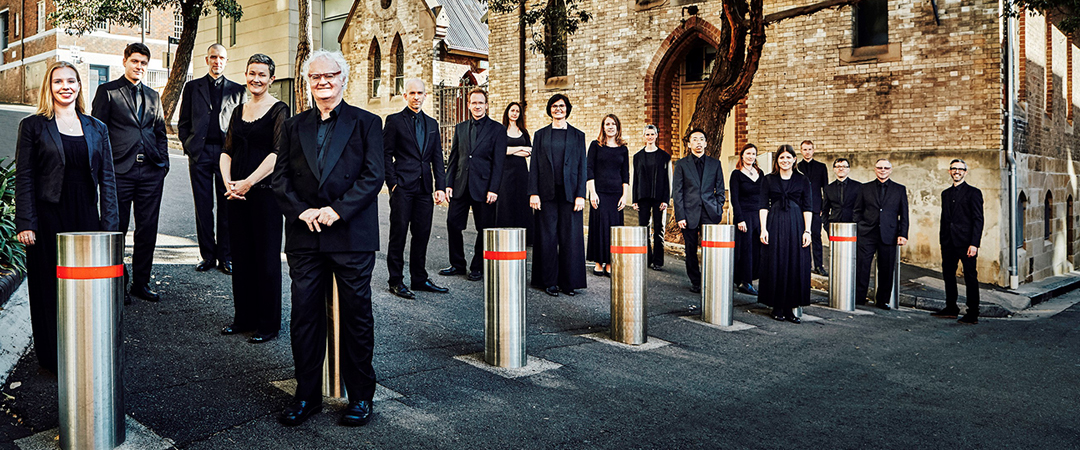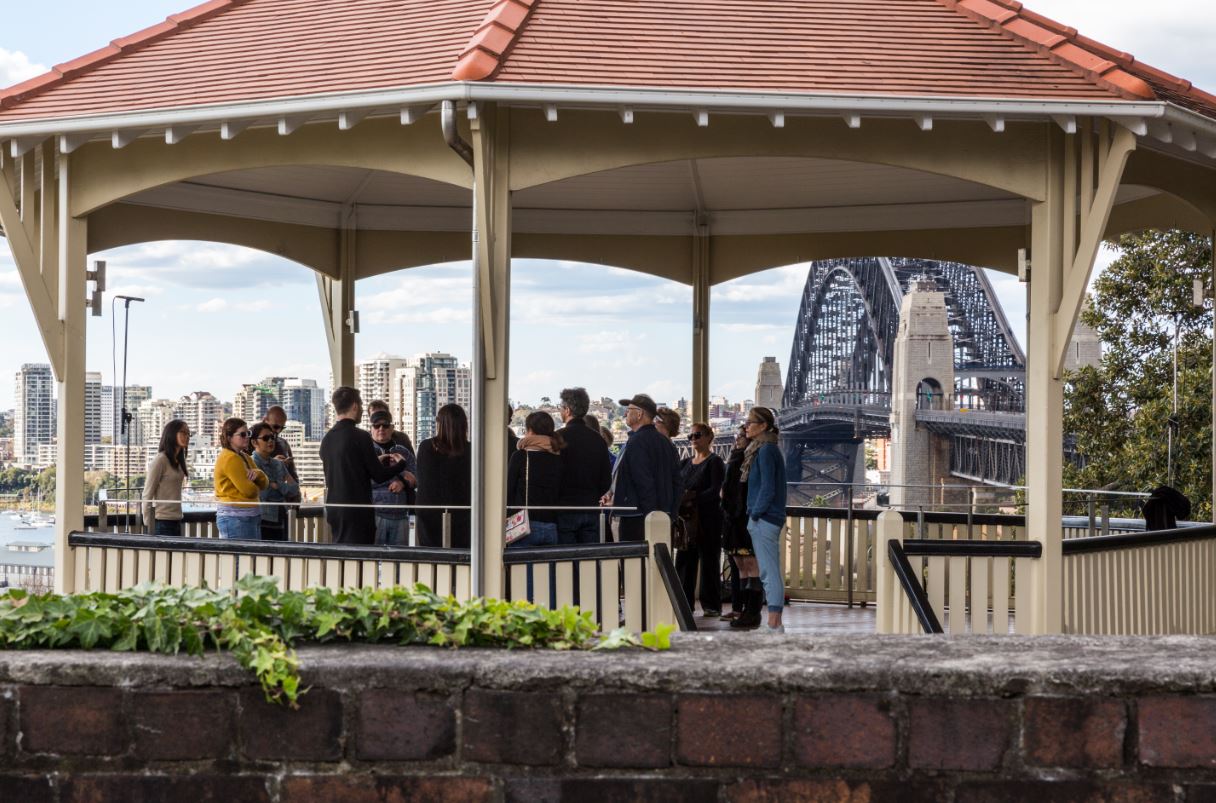Q and A with Harry Christophers

When The Sixteen first began performing over thirty years ago, its members were paid the princely sum of £5.00 with a pint of beer as a bonus. Since then, The Sixteen has become one of the most highly regarded ensembles in the world. They have enjoyed success across the media with concerts and festival appearances in the world’s major venues, over a hundred recordings, and television documentaries. The ensemble conducts an active educational programme and has garnered numerous accolades, amongst them a classical Brit Award, a Gramophone Award, a Grammy nomination, a Grand Prix du Disque and a clutch of Schallplattenkritik. Their repertoire derives mostly from early times and before, but extends to opera, contemporary classics and jazz. Throughout this extraordinary journey, there has been one name synonymous with The Sixteen That name is Harry Christophers, the founder of the ensemble.
On the eve of The Sixteen’s single Sydney performance, and only their second tour here in twenty years, Harry Christophers speaks to SoundsLikeSydney in an exclusive Q and A and reveals an unexpected side to his tastes in music.
What prompted you to create The Sixteen?
“It all happened by chance but I’m so thankful it did! There were very few chamber choirs at the time and I wanted to further my love of Renaissance music which I had really been introduced to at Oxford. My tutors were Bernard Rose and David Wulstan, both of whom were passionate about, in particular, English Tudor music. I suppose I wanted to take what they had taught me further and put it into practice”.
What did you want it to achieve?
“To bring emotion and imagination in interpretation into our performances. So much of what was happening in early music at that time was bogged down in scholarship, style and purity of sound; I wanted to cover all those aspects but also allow a real performance to come across”.
The choir and orchestra of The Sixteen are highly lauded and respected internationally. The choir’s activities as well as yours extend beyond choral performance into choral workshops in the community, Genesis Sixteen, the Mentor Programme at the Trinity College, the Guildhall Consort, schools matinees, and your own roles with Boston’s Handel and Haydn Society and ‘Musicians without borders’. What drives you now?
“All the above! I have a long list of works I want to perform. I enjoy what I do; I am blessed with wonderful singers and players who I count as my friends. That’s enough to drive me onwards and upwards!”
When Aled Jones interviewed you in 2008, you chose music by the Rolling Stones to open your playlist. In what way do you find the music of the ‘Stones ‘satisfying’ (pardon the pun)?
“When Eric Clapton was asked what music he relaxed to after a gig he answered ‘Wagner’. I listen to The ‘Stones, Oasis, Led Zeppelin, The Kinks and others when I’m at home cooking in the kitchen in the evening. My children also keep me abreast of some great non classical music. I have a broad taste in music and certain music suits certain times of day”.
Does music outside the classical genre inform your interpretations of classical music in any way?
“No – however I do look for influences either on the composer in question from the past or how he/she has influenced the future. I found it fascinating listening to an interview with Pete Townsend of The Who on how the music of Henry Purcell (and in particular Dido and Aeneas) had influenced him while writing Tommy“.
When you’re on tour and performing in unfamiliar venues, what do you do to assess the acoustic in the venue, and how do you make it work for you?
“Touring is always tiring but arriving in a venue is always interesting and more often than not exhilarating. The Sydney Opera House is among the top venues in the world and once we start rehearsing I will soon realise what tweaks need to be made regarding balance etc. More often than not with a concert hall, when performing Baroque music, it’s a question of finding the best positioning for the continuo section (cello, harpsichord and organ in this case) to achieve optimum effect as all Baroque music stems from that bass line. However, we have our own internal balance and it is important not to tamper with that too much. I am very much of the opinion that audiences adjust their ears to the sound spectrum as soon as the first bar of music is played. Sydney is a special venue and as always the choir and orchestra will rise to the occasion. We aim for a wide dynamic range within the realms of the music we are performing. We must always have faith in what we are doing”.
There is a documentary on The Royal Philharmonia Orchestra which highlights the lack of a succession plan following the death of Sir Thomas Beecham, leading to some very dark times for the orchestra. Is your appointment of Eamonn Dougan as Associate Conductor part of securing the ensemble’s future? What does he bring to the ensemble as Associate Conductor?
“I intend to go on for a good few years but yes Eamonn is part of the long term future. He is very good – full of good ideas but like me he enjoys making music where joy plays a very major role. Neither of us is dictatorial; we are there to bring the best out of our performers and I do believe we know just how far to push them and also when to stop. The Sixteen is a unique group; we are a very happy organisation and the strength of character and wonderful personalities of all involved both artists and staff is why we are still going strong after 30 plus years”.
Pieter Breughel the Elder’s ‘Tower of Babel’ is one of the images on the website of ‘The Sixteen’. Why was this image selected?
“This is for this year’s Choral Pilgrimage Tour. In 2000 I began the Choral Pilgrimage and each year we take a different choral programme and tour the UK going to about 30 of our great cathedrals, abbeys and churches up and down the country. This year the programme is devoted to Flemish music by Josquin, Lassus and Brumel, including movements from his Mass Et ecce terrae motus, often known as the ‘Earthquake Mass’ hence the use of the Tower of Babel image. Brueghel was Flemish – cities in Flanders, especially Antwerp were going through a building boom and so it seemed a fitting image”. SdeS
Tickets:
(02)9250 7777 or www.sydneyoperahouse.com






